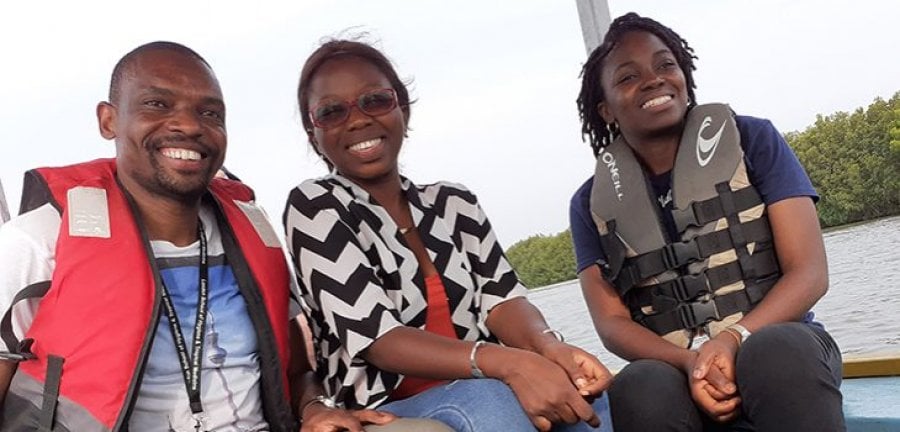Studying epidemiology and medical statistics in The Gambia
15 June 2020 London School of Hygiene & Tropical Medicine London School of Hygiene & Tropical Medicine https://lshtm.ac.uk/themes/custom/lshtm/images/lshtm-logo-black.png
My Job as a Medical Microbiologist and academician requires a combination of microbiological knowledge and both quantitative and qualitative research skills, which makes it an impeccable fit for me.
This is what I would encourage students and colleagues considering a course in Epidemiology & Medical Statistics; It does not only open so many options afterwards but also makes your life as a Medical scientist and academician easy when it comes to research competency. You avoid a lot of hurdles from research designs, choice of studies to data management and analyses.

I did not realise the importance of Epidemiology and Statistics during my Bachelor degree in Veterinary Medicine at Sokoine University of Agriculture apart from using the basic knowledge in Epidemiology and Statistics to understand disease prevalence, incident, morbidity and mortality rates. It was after I went for my MSc and PhD when I realised that I could not do without in-depth knowledge in Epidemiology and Statistics.
My main concern after my PhD was if I would be able to do a course in Epidemiology and Statistics. Thanks for the opportunity I got through African Research Excellence Fund (AREF) to attend the first introductory course in Epidemiology & Medical Statistics, organised by the London School of Hygiene & Tropical Medicine and MRC Unit the Gambia.
It is taught by biostatisticians and epidemiologists who have an in-depth understanding of clinical practice and research.
In fact, it ended up being my favourite course. It is taught by biostatisticians and epidemiologists who have an in-depth understanding of clinical practice and research and know how to make it easy to understand even for students with very elementary knowledge of epidemiology and medical statistics.
The training was fantastic and covered a wide variety of subject areas in epidemiology and statistics. It equipped me with a wide range of practical skills – some of which I had not even envisioned before!
After the training my understanding of how to analyse data has become a real strength of mine and absolutely helps me in the work I do as a researcher and academician. Moreover, the training in Gambia had provided me with yet another opportunity to meet with a diverse group of professionals and experts in various medical fields and helped to create research collaboration networks…the Baobab Juice during the inter-session breaks was absolutely energising for the complex statistics.